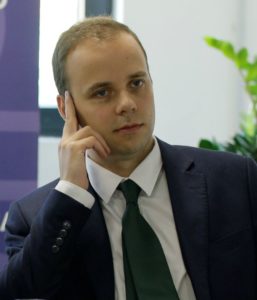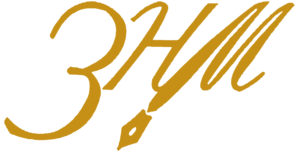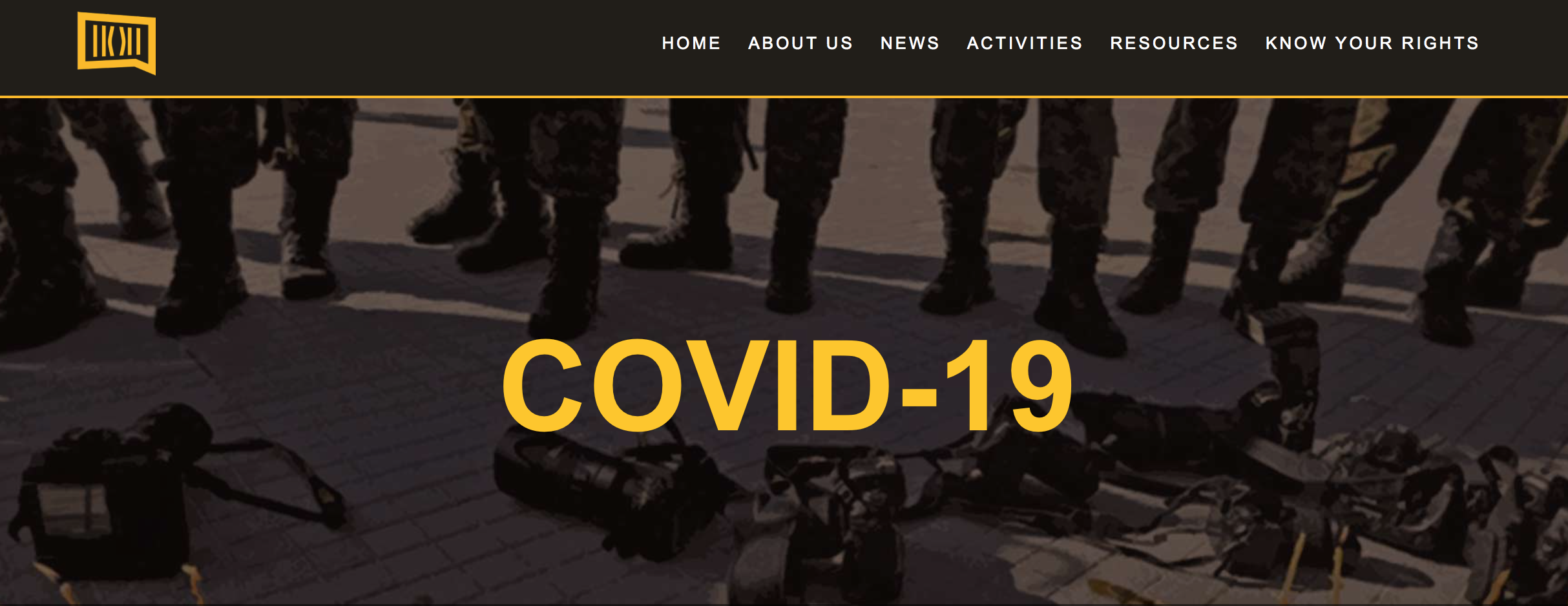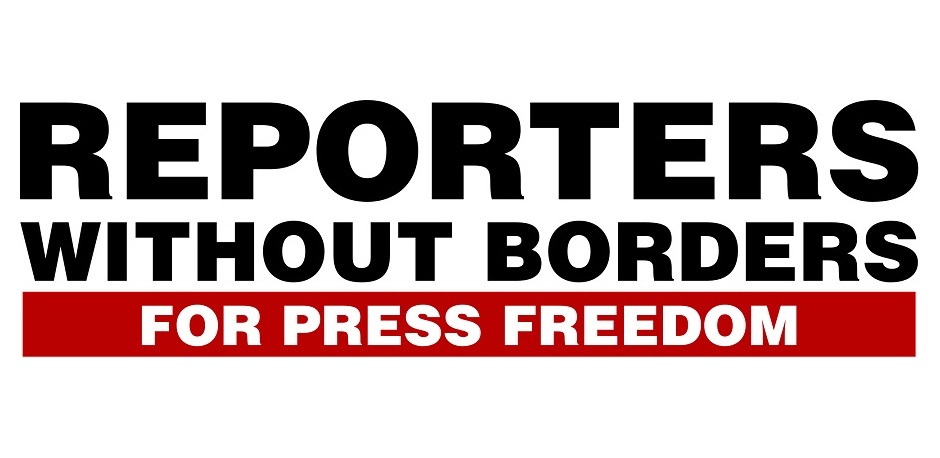In a series of interviews SafeJournalists discusses how the pandemic influences media freedoms and journalists, are the authorities using the crisis to curb these freedoms and media owners to cut jobs.
NORTH MACEDONIA: AJM IS ON WATCH
As coronavirus pandemic spreads throughout the world countries of the Western Balkans are not excluded. A slow beginning in March and now in full blow, the virus has taken over every daily routine: citizens are in lockdown, some countries introduced strict curfews, numbers of infected and deceased is increasing. In the middle of such unprecedented crisis, in countries of former Yugoslavia where transition to democracy and getting closer to the EU lingers, journalists and media are facing similar challenges. The most important is getting information of public interest to citizens and contribute to their safety and ending of the pandemic. While doing so, they are at risk too – not only from the virus. In a series of interviews SafeJournalists discusses how the pandemic influences media freedoms and journalists, are the authorities using the crisis to curb these freedoms and media owners to cut jobs. Finally, what their associations have done so far to help its members and other journalists now and in what follows. Our first interlocutor is Dragan Sekulovski, executive director of Association of Journalists of Macedonia.
THE STATE OF EMERGENCY: The state of emergency on the whole territory of North Macedonia was put in effect on March 19, 2020, for a period of 30 days and a month later the President of the country declared 30 additional days that will last until middle of May. As of beginning of April strict curfew was introduced: movement is not allowed from 4 pm to 05 am each working day and from 4 pm on Friday to Monday 05 am (61 hours). For Easter holidays the limitation for movement or the so-called curfew lasts from Friday, 17.04 at 4 pm until Tuesday, 21.04 at 5 am or in total 85 hours – longest ever in the country. These restrictions of movement also apply to media workers and those who have to continue with their work can be exempt from these restrictions if their application for licence sent via email is approved by the Ministry of Information and Administration of NMK.
SafeJournalists: Like in many countries that have imposed curfew in North Macedonia journalists are being exempt. They can contact the Ministry of Information and Administration and apply for a licence to move freely while on duty. Are all media workers eligible for such licence?
Dragan Sekulovski: In order to seek license for movement journalists, media workers must be part of the media outlets that are registered with the media regulatoror at the Register of professional and online media of the Council of Media Ethics and AJM. We objected to this since the registration is on voluntary basis and not all online media are part of this register. As a result, some of the journalists are not allowed out of their homes or offices while the curfew is on. In addition, the criteria for issuing such license is not clear when it comes to freelance journalists or journalists working for international agencies and media as local correspondents.
SJ: Using ZOOM as a tool, North Macedonia introduced online press conferences. Similar steps are being taken in other countries. What is Macedonian experience with this so far?
DS: Since the beginning of the crisis the Minister for Health, as well as other relevant officials, organised live daily press conferences lasting 1-2 hours. At the beginning journalists were present at the premises in the Government, sitting in the room on a safe distance and had the possibility to ask questions. It is a fact that some of the journalists abused the situation and were spreading propaganda, mainly those coming from a group of online media sponsored by Hungary. Coincidently or not, the Government changed the format of the press conference and now journalists apply to ask questions prior to the press conference and they ask and comment live via ZOOM. The formal explanation of the authorities for this format should increase the safety of the actors engaged. However within the community there is a belief that another reason was to avoid critical questions. We have two problems: journalists from media not registered in mentioned registrars are not allowed to ask question via the video link and there is a level of dissatisfaction among journalists that the officials are not responding to all questions and that may lead to partial informing.
SJ: AJM gathers journalists and media workers in NM. Did you speak to members? What is the overwhelming sentiment among them about their ability to perform their duties at the time of pandemic? What is their main concern?
DS: In general, the journalists are very much concerned by this crisis since it affects their daily routines. However, the biggest challenges they face at the moment are economic insecurity and safety issues – lack of medical kits and protocols. AJM and the union of journalists were vocal in the public, requesting of the government to include the media sector in the first measures for economic assistance. At the end of March, the media regulator returned the annual fees that broadcasters are obliged to pay in a total amount of 1.2 million EURO. It is a meaningful financial support to private TVs and radio stations. There was no similar practice in the past meaning that this decision and its effects are yet to be seen and will be evaluated by the media community. Despite the fact that financial support of media is announced, some of the media outlets started with the layoffs of journalists. We had a case of several online media under the company NET Media Group Dooel – the owner handed over dismissal decisions to five journalists without any specific explanation. One of the journalist accused the media that her signature was forged on the settlement agreement.
SJ: You said AJM was active in requesting aid to media sector and thus helping journalists as well. What has the Association done so far to help its members?
DS: AJM drafted a set of recommendations regarding safety of journalists during the pandemic and sent it to the management of more than 260 media outlets. The goal was to remind the media owners that they should make efforts to increase safety of its staff since, due to the nature of their work, they are directly exposed and at risk. We also published complementary guidelines for journalists how to be safe and ethical when reporting about corona virus. As most of our publications, it is bilingual – Macedonian and Albanian – and it has been disseminated among journalists and media. In the upcoming days an English version will be finalised and sent to the safejournalist.net partners and to the European Federation of Journalists with a request to disseminate the materials to all its members. The value of the Guidelines was recognised and they were promoted by the media regulator, the Delegation of EU in Skopje, USAID Skopje, local branch of Council of Europe and other diplomatic missions. We are currently conducting our members’ needs assessment and in coordination with Free Press Unlimited are looking into providing psychological support and advice regarding digital security. At the same time, we are providing legal advice and litigation to our members in several cases of slander at the Macedonian civil courts.
SJ: What was the response of media outlets to the recommendations you sent?
DS: MIA and MRT generally apply these recommendations based on the talks AJM had with the directors of these outlets. The first officially recorded infected journalist was the main editor of the national TV station Kanal 5, this was at the beginning of April. Following interviews by the editor, a group of journalists and leaders of the two biggest political parties went in self isolation. This goes to show how important it is that journalists are more protected and cautious in their work regarding the on going crisis.
SJ: One of the concerns you mentioned is lack of medical kits.

DS: Yes – and to counter it, AJM got in touch with OSCE Skopje and secured 150 medical kits that will be distributed to media outlets free of charge in mid April.More than 100 media outlets from Skopje and other cities applied for this assistance and in middle of April were distributed to media not only in Skopje but also in more than 10 other cities in the country. The kits (100 large and 50 medium) contains protective gloves, masks, suits, glasses, sanitizers etc. This is significant assistance to the media since part of them are not able to obtain the safety gear and equipment necessary for their work in this crisis. The media community positively reacted on this action since there is a deficit of such equipment and journalists are in need given that they are present of field to report about the crisis.
SJ: One of the tasks of journalists’ association is monitoring levels of freedom of expression and violation of journalists’ rights and to responds appropriately. Have you had cases of limitations of media freedoms and actions taken against journalists?
DS: In the past month AJM didn’t record serious infringements of the journalists in the area of their safety. There were several incidents of officials addressing journalists in an impolite and partially aggressive way at the public events or in a press release by municipality. There was one case where a private hospital threatened investigative journalists with a lawsuit because of a text which was published about the tests for COVID-19. Threats via social media towards journalists, even by leaders of political parties are also still common practice. AJM reacts to such incidents (see here) – in addition to public condemnation, we offer free legal support, communicate with the authorities and coordinate actions with other media organizations and monitor development.
SJ: You mentioned AJM offers free legal advice. What does it encompass and how many journalists have contacted AJM since the pandemic began?
DS: AJM offers free litigation and currently covers legal expenses for five ongoing court cases against journalists for defamation and insult. In addition to this, we daily receive calls from our members seeking legal advice. Sometimes they call AJM office, others our attorneys. Recently, most of the questions refer to the curfew, limitation of movement and how a license can be obtained. It is hard to say how many members did contact us for this purpose, but roughly I could say around 50 individuals and media outlets.
SF: AJM acted with the union in an effort to help media. Did it participate in any other initiative that helps journalist indirectly?
DS: Advertisers are cancelling their contracts with the media and directly affects to their work. AJM and the Independent Union of Journalists and Media Workers demanded urgent subsidies for the media industry. We also asked for the media to be included with other economic sectors that are mostly affected by the crisis and this demand was partially accepted – media outlets to be part of the first sectors that will be using this state assistance. Through our network and partnerships AJM is trying to gather positive experience from the region in this context and to be proactive in seeking supportive measures to journalists and media.
SJ: There is much talk about abuse of the pandemic with a goal to limit media freedoms. Are you concerned that this might be happening in North Macedonia?
DS: Yes, there is a concern that the Ministry of Justice may amend the Criminal Code in a sense that all publishedinformation about the current crisis that are considered fake by the authorities will be punishable by imprisonment. Some unofficial text of these amendments was circulating among journalists and some of the officials announced such measures in public, however AJM hasn’t received any official information from the authorities on this topic.
SF: With uncertain times ahead, what must be done to protect freedom of expression? What will AJM work on in the coming weeks?
DS: The most important thing is to monitor the steps authorities take in their attempts to adopt restrictive legislation that may limit the work of the journalists and/or endanger the freedom of expression and right of information. There are examples in which political leaders are abusing the global crisis to increase the level of political propaganda via the media and thus to impose unrealistic fear upon citizens and to present themselves as saviours of the nation. These situations of building a cult towards individuals that are part of the authorities or the opposition may endanger the fragile democratic capacities of countries in the region.
Critical journalism is under pressure when it comes to reporting of the current crisis. Monitoring of the practice of freedom of expression and the right to information as well as advocacy and legal assistance by the Association is a something that we must and we provide in order to improve the safety of the journalists in North Macedonia.
 Dragan Sekulovski is a dynamic and experienced professional, with a considerable track record and hand-on-work experience in Project Management, gained through working for and with a variety of non – governmental, governmental and private actors, and international donors’ community in North Macedonia, most of whom are involved in the process of development. Lately he has been involved in managing strategically important projects of the Association of Journalists of Macedonia, funded by different international donors supporting the freedom of media and democratization processes in the country. Dragan has been and is a member of a variety of working groups within public institutions for amending national laws in the area of elections, media broadcasting, defamation and slander and Criminal Law as well. Dragan has been also an editor in more than ten publications and manuals on media related topics in the past several years. Dragan holds a bachelor and master degree in law at the University of St Cyril and Methodius in Skopje.
Dragan Sekulovski is a dynamic and experienced professional, with a considerable track record and hand-on-work experience in Project Management, gained through working for and with a variety of non – governmental, governmental and private actors, and international donors’ community in North Macedonia, most of whom are involved in the process of development. Lately he has been involved in managing strategically important projects of the Association of Journalists of Macedonia, funded by different international donors supporting the freedom of media and democratization processes in the country. Dragan has been and is a member of a variety of working groups within public institutions for amending national laws in the area of elections, media broadcasting, defamation and slander and Criminal Law as well. Dragan has been also an editor in more than ten publications and manuals on media related topics in the past several years. Dragan holds a bachelor and master degree in law at the University of St Cyril and Methodius in Skopje.

The Association of Journalists of Macedonia (AJM) was founded in 1946 and is a member of European Federation of Journalists (EFJ). AJM is an independent, non-governmental and non-political party organization whose purpose is to be the protector and promoter of professional standards and freedom of expression.








